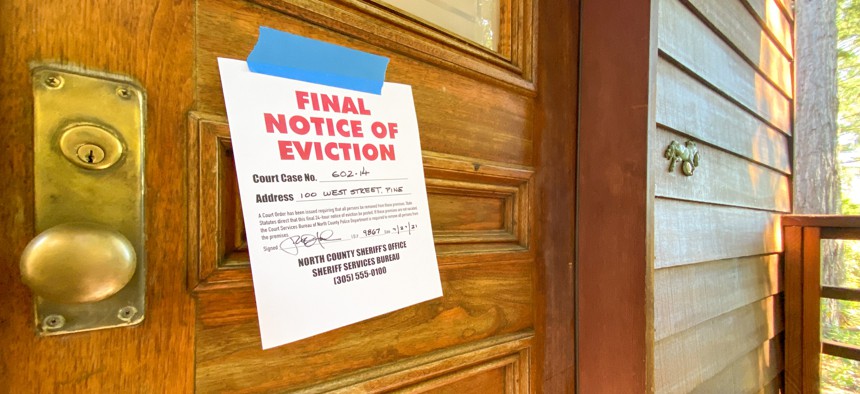Federal Eviction Moratorium Extended Through July

istock.com/Bill Oxford
The Centers for Disease Control and Prevention extended the eviction ban through July 31. Housing advocates have lobbied to extend protections as federal emergency rental assistance is being doled out.
This story was updated Thursday to reflect that the CDC approved the eviction moratorium extension.
The federal eviction moratorium, previously set to expire June 30, was extended by one month to offer additional protection to tenants who have fallen behind on rent during the coronavirus pandemic.
Centers for Disease Control and Prevention Director, Rochelle Walensky, signed an extension of the existing national eviction moratorium on Thursday. The extension will keep the eviction ban in place through July 31. This marks the third time the moratorium, which was first adopted in September, has been extended.
Officials who were briefed on the Biden administration's plans confirmed Wednesday that the CDC moratorium would be extended once more.
Housing advocates praised the move.
“Extending the moratorium is the right thing to do—morally, fiscally, politically, and as a continued public health measure,” said Diane Yentel, president and CEO of the National Low Income Housing Coalition. “Allowing evictions to proceed when there are tens of billions in resources to prevent them would be wasteful and cruel.”
White House press secretary Jen Psaki on Wednesday deferred questions about a possible extension to the CDC, saying the White House "wouldn’t get ahead of their assessment."
Reuters first reported the moratorium extension, indicating an announcement from the administration could come as soon as Wednesday.
The moratorium has come under attack from landlords and realtors who say it has shifted financial hardships from renters to apartment owners who have gotten no such financial reprieve. The U.S. Supreme Court is weighing a petition from landlords asking that the moratorium be struck down.
Housing advocates have asked the Biden administration to keep the eviction ban in place longer while cities and states work to distribute emergency rental assistance to renters who have fallen behind on payments during the coronavirus pandemic.
Yentel said the extension will also give cities and states more time to increase vaccination rates.
Congress allocated nearly $47 billion in emergency rent relief through the Covid-19 aid legislation approved in December and March. But local jurisdictions had to devise rent relief programs and mechanisms for doling out the money from scratch. Facing crushing demand, many jurisdictions have struggled to get the money to renters.
“There is all this new money available for rental assistance for people who have gotten behind on rent,” said Steve Berg, the vice president for programs and policy at the National Alliance to End Homelessness. “A month would allow a lot of rental assistance that Congress has provided to get in the hands of landlords and tenants.”
It’s difficult to predict how many renters would face evictions if the ban is allowed to expire at the end of this month, Berg said.
Other housing experts have estimated that 4 to 5 million households are at least three months behind on rent, putting them at high risk of eviction when the moratorium ends.
“Not all of those will become homeless, some will find a way to keep a roof over their head,” Berg said. “But it's going to make the problem worse.”
Andrea Noble is a staff correspondent for Route Fifty.
NEXT STORY: How Ranked-Choice Voting Elevates Women and People of Color Seeking Office





